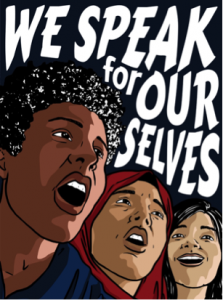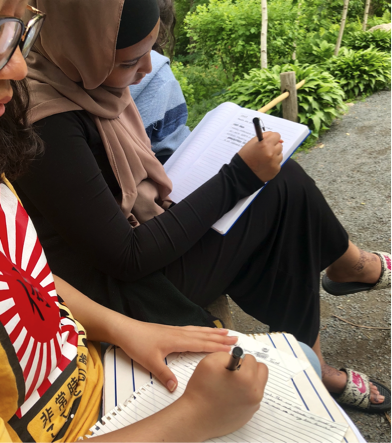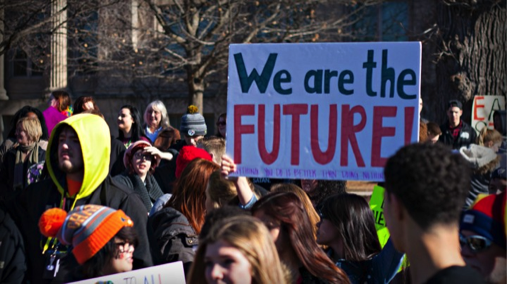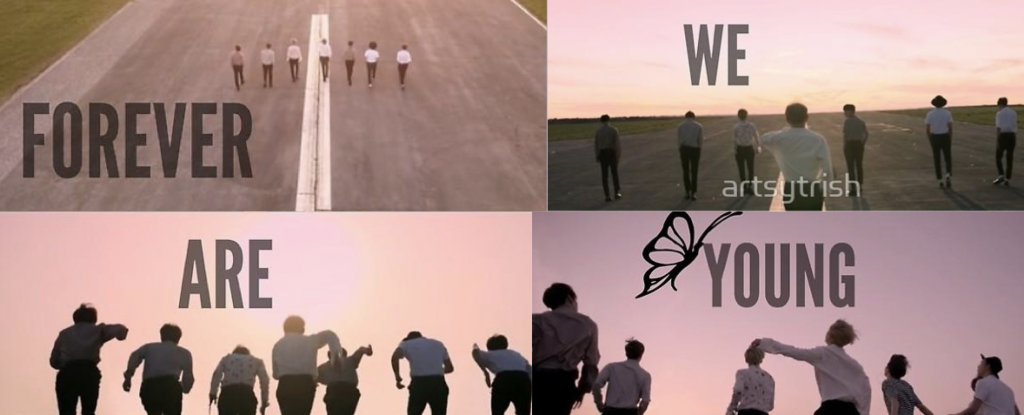By Twin Cities FMFP Youth Team. This post is the fifth in a blog series on stories of education for liberation work happening in the Twin Cities and surrounding region, leading up to the 2019 FMFP conference.
The FMFP youth team consists of 11 members from middle school, high school, and college. In the months leading up to the Free Minds, Free People conference the youth team embarked on a series of field trips and FMFP planning. Our goal through these field trips, was to build connections, community, and learn about educational activism happening in the Twin Cities.
For example, when we went to the Minnesota Writing Project, we discussed what it means to be a writer, activist, and how writing can add value to our activism. We also visited Youthprise, where we learned about how researchers don’t have to be old white men in lab coats; anyone can be a researcher regardless of background, age, and race. Our other field trips and meetings, to UROC, Como Conservatory, etc. were centered on the importance of building community and networking. We learned that many educational organizations are facing challenges including funding and involvement, but the work they do is necessary and valuable in youth’s educational journeys.
In all these organizations a key aspect of their work is youth involvement. Without the voices of young people the work they are doing is incomplete, which is why they work so hard to be youth centered. As a team we came up with 6 reasons we need youth educational activists, inspired by the field trips and discussions we had leading up to FMFP. We hope that reading this will encourage you to teach others about why we need more young people to be activists. Young people have so much to contribute to this work, we just have to have the space to lead.
1. Students know what students need better than anyone—if we don’t speak up, we risk someone else doing it for us
School Boards only know so much, and they can’t rely only on their educational experiences from their time in school. Youths need to have their voices be heard, and not just as a last resort or an afterthought. Why should people who aren’t experiencing the current school system be making policies and rules for us, the ones who are being affected? We need our voices to be heard, loud and clear.
2. Nobody else knows schools the way students do – we’re experts in all the flaws and successes happening in schools
No one understands the school system like us youth do, we’ve experienced it, we’ve seen the good and the bad, we’ve just seen it all. Growing up I didn’t really like school much because I never felt that I was good enough or smart enough for it, but as I grew older I began to start speaking with teachers and asking a lot more questions than I did before and from there on I began to develop a better relationship with my teachers. Soon I started to realize my grades were a lot better and also I was a lot happier so my emotional health was going in a better direction.
3. We want education to be challenging AND supportive
I remember my first ever ESL (English second language) was horrible because my teacher:
- Lacked Patience
- Lacked Respect
- Lacked Teaching Ability
- Was A FLAT OUT RUDE PERSON
She would put language books and cards down, expect us to know the words just because we know our ABCs. So I wasn’t learning anything new. The T.V was my best teacher honestly. Boy my self esteem skyrocketed when I stop Swiper from swiping. I come into that class with my head up high reading the books and cards better each time. How is it that Dora was a better English teacher than the one I had in school?
4. We want to invest in the future.
The education of future generations in our community and those across the globe matters as much as ours does. American schools are becoming more and more diverse, it should show with the teachers being employed to the students you see in class. Future generations are what will change the world after our own generation. Think of your younger siblings, nieces, nephews, as well as your future kids, grandchildren, and so forth.
5. Unsatisfied with at least one thing in your school? Change it!
At home, I spoke only one language to my grandma, speak two different languages to my parents. Kids learn fast but they forgot just as fast. Language is the base of culture and it’s hard when the foundation isn’t solid. Schools should promote a broader language program instead of just French and Spanish. Also, as an activist you can create or advocate for a program for your culture and language in school so you can create a place of comfort in school. In my school, looking at the general demographic of students, I don’t see that being shown in my AP classes. There is also a lack of diversity with the staff also, from their race and background.
6. Education issues still exist after you leave school. Stay young, stay connected to education!
As we go through school, we feel deeply connected to educational issues. Every day we are faced with the problems that happen when schools are underfunded, when teachers don’t have equity training, when school lunches are low quality, and the list goes on. When most people leave high school and don’t have to experience those frustrations and struggles on a daily basis anymore, fighting against those issues becomes a distant memory.
As young people who are still in the trenches so-to-speak, we don’t want anyone to forget what it was like to be a student. The parts of yourself that developed when you were in grade school are still a part of you, and they always will be there. If you are a youth activist, we hope that you will reflect on the reasons we shared so that you can encourage more of your peers to join in this work. If society no longer identifies you as a youth, we hope that you never forget the high schooler and middle schooler inside of you who is restless for change.




